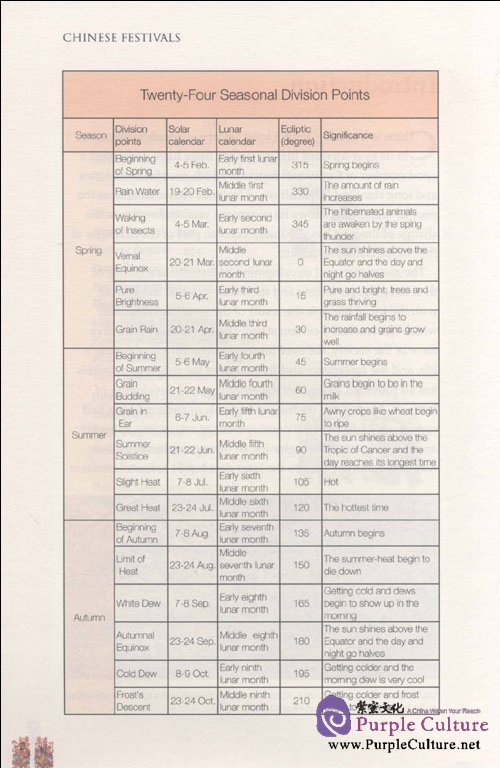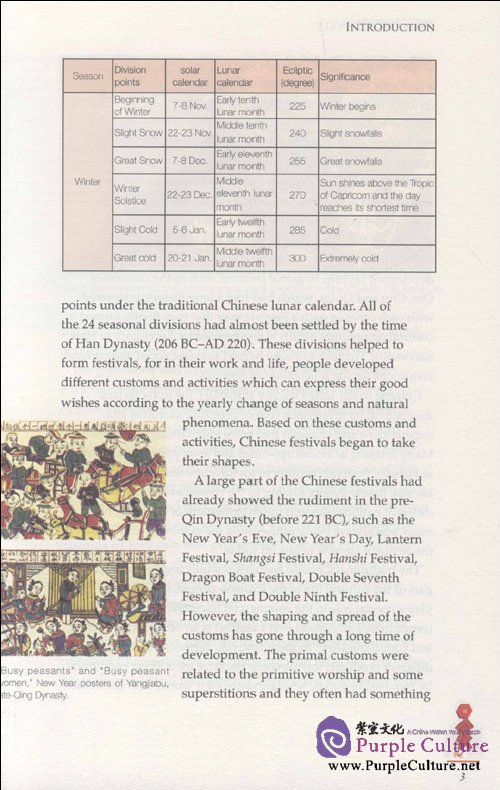Sample Pages Preview


Winter
Solstice, colloquially named "Dong Jie," is a veryimportant festival in
ancient times. Winter Solstice comes fifteendays later than the Great
Snow. With the daytime reaching itsshortest time in the northern
hemisphere on that day and thenight becoming the longest, it is the
coldest day in a year. It alsosuggests the arriving of spring and is the
turning point betweenwinter and spring. Thus among the twenty-four
seasonaldivisions, Winter Solstice is the most important one.
The
ancient people thought that when Winter Solstice came,though it was
still cold, the spring was already around the corner.People who were
still out should come back home to show thatthey had reached their
destination at the end of a year. People inFujian and Taiwan provinces
regard Winter Solstice as the dayof reunion of families; for it is a day
when they offer sacrifices totheir ancestors, and anyone that doesn't
return home will be seenas a person who has forgotten his ancestors.
The
night of Winter Solstice is the longest in a year, so a lotof families
will take advantage of this night to make "WinterSolstice dumplings" of
glutinous rice. To distinguish it from "cisui"(bid farewell to the
outgoing year) on the lunar New Year'sEve, the day before Winter
Solstice is named "tian sui" or "ya sui,"suggesting that though a year
(the Chinese "sui" means "year")hasn't ended, everybody has been a year
older.

